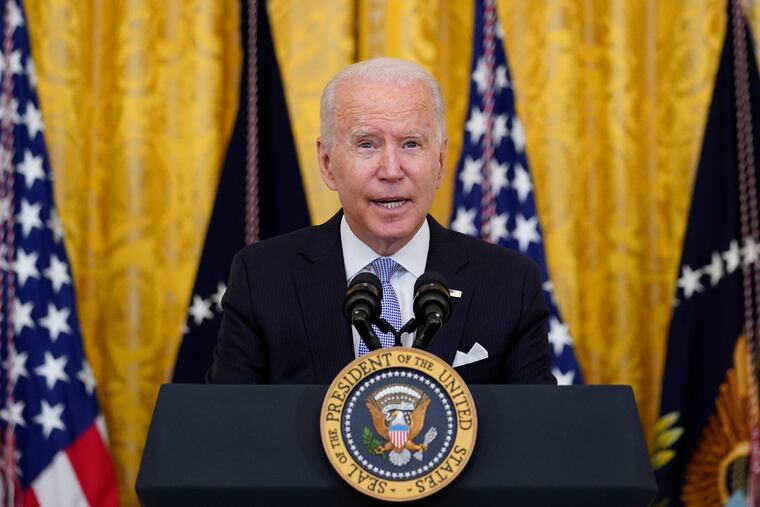How small businesses should prepare for union-boosting legislation in Washington
Washington is mulling legislation that could stoke unionization efforts among small- and mid-size businesses.

Included in President Joe Biden’s infrastructure initiative — otherwise known as the American Jobs Plan — is a call to pass the Protecting the Right to Organize (or PRO) Act. It’s uncertain how much, if any, of the PRO Act’s provisions will be included in a final infrastructure bill but if it does become law, your business needs to be prepared.
The PRO Act was passed by the House of Representatives in March, but not yet by the Senate. The legislation would change existing labor rules that could impact how businesses classify independent contractors. But perhaps its biggest impact will be how it gives unions more freedoms to organize workers.
“Nearly 60 million Americans would join a union if they get a chance, but too many employers and states prevent them from doing so through anti-union attacks,” Biden said in a statement. “They know that without unions, they can run the table on workers — union and non-union alike.”
The law may potentially be good for employees, but if passed it could create headaches for employers.
“If the PRO Act becomes law, then unions are going to be out and about because it’s an opportunity to really increase membership,” said Joe Brock, a former union president who is now at Reliant Labor Consultants in Philadelphia.
The PRO Act is a pro-worker initiative opposed by many large corporations and business groups such as the U.S. Chamber of Commerce and National Retail Federation. But the legislation could also have a significant impact on small businesses that don’t have the resources to educate their employees or respond to unions’ demands.
“Small businesses are particularly vulnerable,” said Brock. “That’s because it’s harder to organize a big business.” He said that the “overwhelming number of union petitions” he’s seen are for smaller companies because unions don’t have the resources to go after big places. “Small business are their bread and butter.”
Claude Schoenberg, a Bala Cynwyd-based employment lawyer, agrees. “The intent of the law definitely impacts small and medium-sized businesses, especially because those businesses don’t have the resources to devote to addressing it,” he says.
Both Brock and Schoenberg believe that the passage of the PRO Act will pose significant challenges — and added costs — for these businesses.
For example, it would give unions the ability to override local “right to work” laws and require employees who don’t belong to a union but work at a company that’s covered by a union contract to pay union dues. This would provide more financial resources and clout for unions to use in wage and benefit negotiations with employers.
It would also limit the amount of influence an employer could use in union elections and further allow employees to cast ballots even if they’re not on company property, which will make it easier for unions to organize.
Even if a union contract is approved by workers, there are often challenges in ironing out a final contract. The PRO Act would enable unions to overcome these challenges through independent arbitration. The potential legislation would also result in corporate directors and officers being subject to personal liability if it’s found that workers’ rights are being willfully violated.
So how likely is the passage of the PRO Act? Most experts agree that it depends on the filibuster. Because the legislation is not budget related, it can’t pass the Senate by being part of a “reconciliation” bill, which only needs a majority vote in the Senate chamber where the Democrats have the slimmest of majorities. For the PRO Act to pass, the Senate would need to change its filibuster rules and that would require 60 votes, a prospect that is unlikely.
But even if the filibuster rules aren’t changed, Brock said, once the National Labor Relations Board has a majority of Democrats — which will likely happen next year as terms expire and Biden appoints new members — many of the PRO Act’s provisions could easily be implemented through the board.
So small businesses need to be ready. How?
For starters, Schoenberg is advising his clients to revisit their insurance coverage. That’s because new rules that favor unionization could result in litigation over back pay, wrongful discharges, and “all sorts” of new penalties. “You need to make sure your liability insurance covers union organizing activities,” he said. “That’s one of the first places I look.”
Besides lobbying their local representatives (and asking others to do the same on their behalf) both Schoenberg and Brock are telling their clients to be more open about the pros and cons of unionization with their workforce.
“Unfortunately, employers don’t educate their employees about unions until they get a petition and then they only have a few weeks to do it before votes are required,” Brock said. “There are pros and cons to unionization, and employers need to not be afraid to have that conversation.”
Brock has found that if employers put their employees in a position to make a good business decision for themselves, most wind up not joining a union.
Those tactics make sense. But there’s one that’s even better: it’s simply taking care of your workers better than a union would. To that end, Schoenberg tells his clients to look at what the market rates for compensation are in the area and make sure that their pay and benefits are competitive.
“In the end, why would an employee want to be represented by a union if they’re already getting paid more and treated well?” he said. “That’s probably your best strategy if the PRO Act does become law.”
Gene Marks is a certified public accountant and the owner of the Marks Group, a technology and financial management consulting firm in Bala Cynwyd.